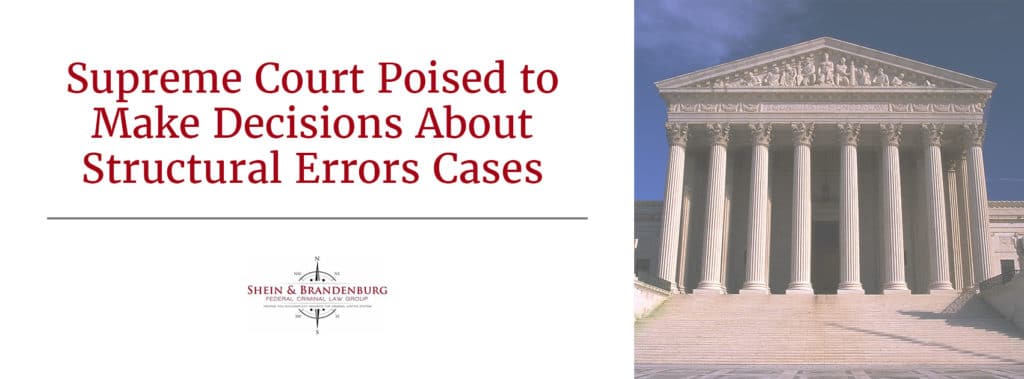Federal law holds that to be successful, a person arguing an appeal on the basis of ineffective assistance of counsel must show that substandard service negatively affected the trial’s outcome. Another flaw in trials, called a “structural error,” will result in a defendant being granted a new trial even if the error did not result in a person’s case being adversely affected. The Supreme Court case of Massachusetts v. Weaver, however, recently asked what requirements would exist if both ineffective assistance of counsel and a structural error are present. This case offers the opportunity to provide some clarity on how federal prosecutors will respond to this case.
The Facts of the Case
The defendant in this case was 16 when he was charged with shooting and killing a 15-year-old. The defendant eventually confessed to this crime. Because this case received much publicity, a large number of jurors went to a Suffolk County courtroom. Unfortunately, the judge presiding over the case was forced to close the courtroom for jury selection, which resulted in the defendant’s mother and other supports being kept out of the trial.
Five years after the trial, the defendant moved for a new trial partially due to the argument that the defendant’s lawyer failed to object to the alleged unconstitutional closing of the courtroom during the jury selection process. The new trial judge denied the defendant’s appeal on the basis that a claim of unconstitutional ineffective assistance of counsel requires a showing of prejudice.
The Supreme Court’s Opinion
The Supreme Court concluded that the judge’s decision to exclude the defendant’s mother and supporters was a structural error in the form of a Sixth Amendment “public trial” violation. The Supreme Court, however, held that because this structural error came later in the trial, the defendant was required to show prejudice as part of an ineffective assistance of counsel claim.
The Supreme Court was divided on how to decide this case.
Justice Ginsburg asked whether there were different forms of structural errors.
Justice Roberts was curious as to whether a structural error occurred in the case at all.
Justice Gorsuch suggested that a “triviality exception” might exist in the case.
Justice Kagan and Justice Alito shared diametrically opposed views. Justice Kagan argued that prejudice is required for ineffective assistance of counsel, while Justice Kagan suggested that prejudice would be very hard to demonstrate in the event that a structural error existed in a case.
It currently remains uncertain exactly how the Supreme Court will rule on this case.
Consult with a Knowledgeable Criminal Defense Attorney
To make sure that your appeal and legal defense is as strong as possible, it is wise to contact a knowledgeable criminal defense attorney who can help throughout the process. Do not hesitate to contact the Federal Criminal Law Center. Our firm can be reached at 404.633.3797 or by filling out our quick and convenient online form.


